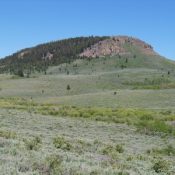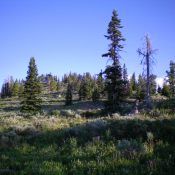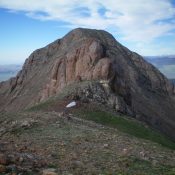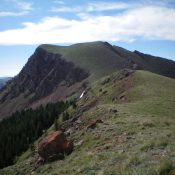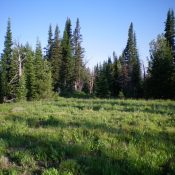
This peak is not in the book. Published November 2020 Peak 8432 is located on the Continental Divide about two miles west-southwest of mighty Mount Jefferson (10,203 feet). It sits at the headwaters of Tin Cup Creek (ID) and above Hell Roaring Creek and Lillian Lake (MT). The easiest ascent route is via the east ridge from a saddle near … Continue reading
![Looking down into the crater east of the true/west summit of Little Butte. The [lower] east summit is on the far side of the crater. Livingston Douglas Photo](https://www.idahoaclimbingguide.com/wp-content/uploads/CA67D3FF-9415-494E-925B-8D65C8D9EE1C-175x175.jpeg)
